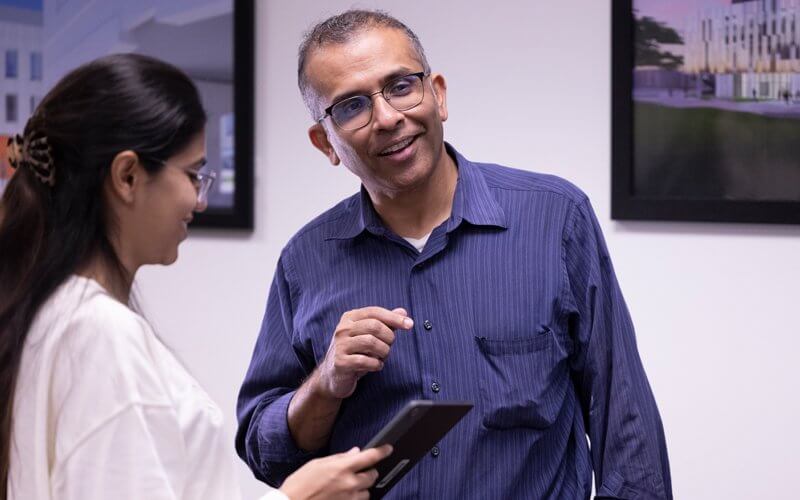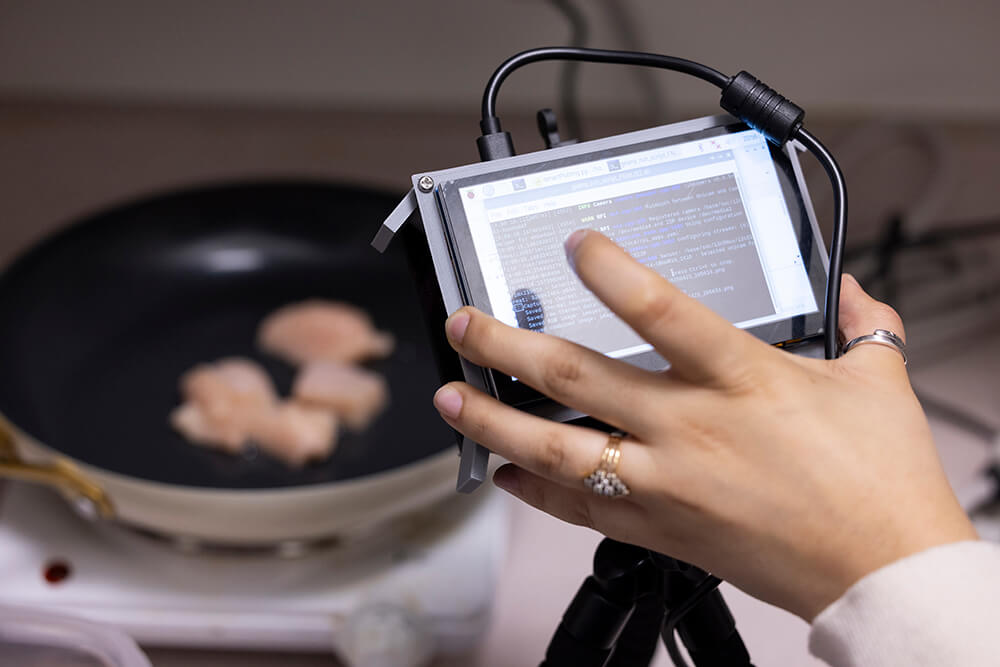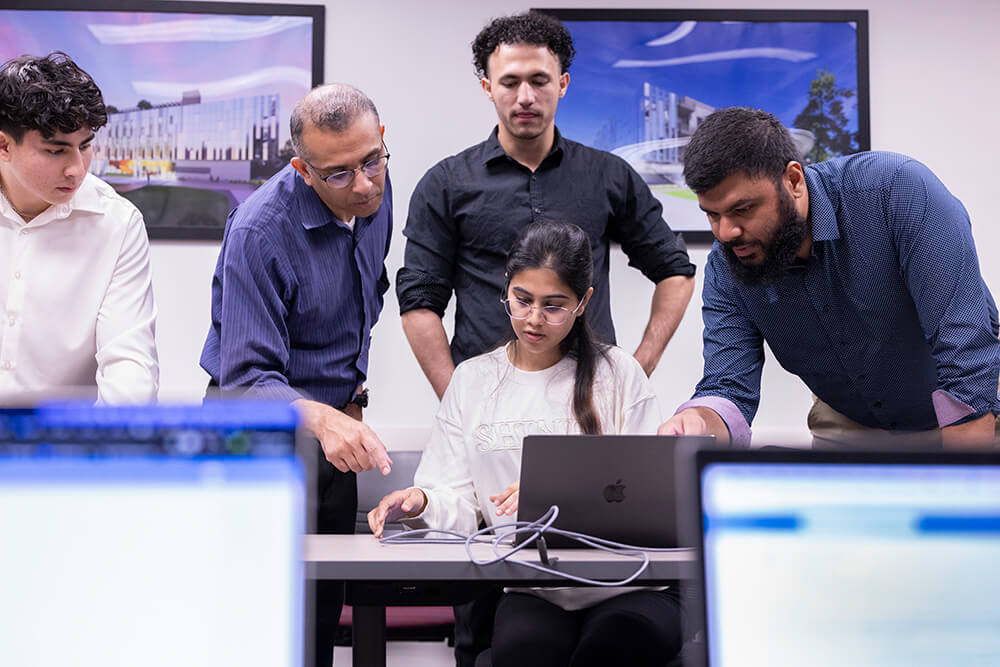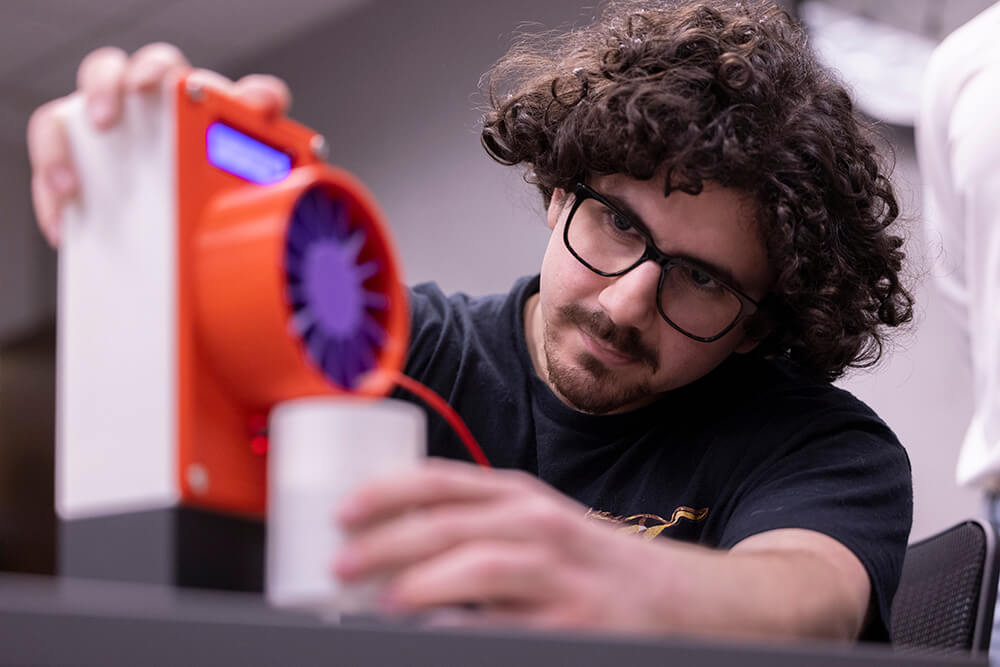
Graduate student Hammad Sheikh and his classmates developed a technology-based smart cooking assistant to help formerly unhoused individuals learn how to cook in their permanent supportive housing.
The team of Cal State Fullerton computer science majors created a prototype, which consists of a mini-computer with a camera and an infrared thermal camera that sits above the stove. Temperature sensors mounted over the stovetop monitor a pan on the burner.
The low-cost prototype can assist users in cooking simple AI-based recipes, such as chicken teriyaki or spaghetti, said graduate student Sugandha Bhandari.
Bhandari and Sheikh, both Class of 2025 grads, recently demonstrated the prototype.

“When someone chooses a recipe, the assistant watches what’s happening on the stove and gives step-by-step instructions in real time,” Sheikh said. “It can see what’s cooking and ensures everything is done right, offering guidance and support along the way.”
The cooking assistant can also be used by seniors and individuals with Alzheimer’s disease or other conditions that make cooking difficult.
Machine learning algorithms are used to analyze the sequence of images from a camera to identify the stage of cooking the user is performing, said Anand Panangadan, associate professor of computer science. He added that the innovative cooking system communicates with the individual via an app on an Android tablet.

“This smart prototype helps formerly unhoused people gain independence and confidence through cooking,” Sheikh said. “It allows individuals to learn how to cook healthy meals at their own pace in their own space, encouraging self-sufficiency in a supportive and empowering way.”
In its final year, the community-based research in the College of Engineering and Computer Science is supported by a four-year, $1.25 million National Science Foundation grant. The grant project focuses on developing smart-home technology prototypes to support formerly unhoused individuals who now live in permanent housing.
Panangadan directs the project in collaboration with Kiran George, associate dean for graduate programs, faculty research and innovation and professor of electrical and computer engineering; Tabashir Nobari, assistant professor of public health; and Benjamin Henwood, a professor of social policy and health at USC.

The researchers are partnering with Mercy House and Jamboree Housing Corp. The nonprofits offer permanent supportive housing, referred to as community-based housing, combined with supportive services.
The use of technology in permanent supportive housing is limited, with little research conducted to examine technological innovations in housing for vulnerable populations, Panangadan said.
The project began with a needs assessment developed in 2022 by Nobari, Henwood and their students. The team conducted a series of focus groups of formerly unhoused individuals living in permanent supportive housing to gauge the types of technology they would benefit from in their new homes.

The focus groups resulted in the decision to develop several technologies intended to work together in a home. The other prototypes created by faculty and students are:
- A smart pill dispenser handles the dispensing and scheduling of pills, reminding individuals of the day and time to take their medication.
- A smart wellness check system assists residents with disabling incidents like falls while preserving privacy. The system uses sensors to detect changes in the room to detect body movement and sends a warning message to a remote app if an anomaly is detected.
Next steps include testing the smart-home technologies at permanent supportive housing sites this summer.
“Our work demonstrates how technology can facilitate and improve services for those previously affected by homelessness,” George said.